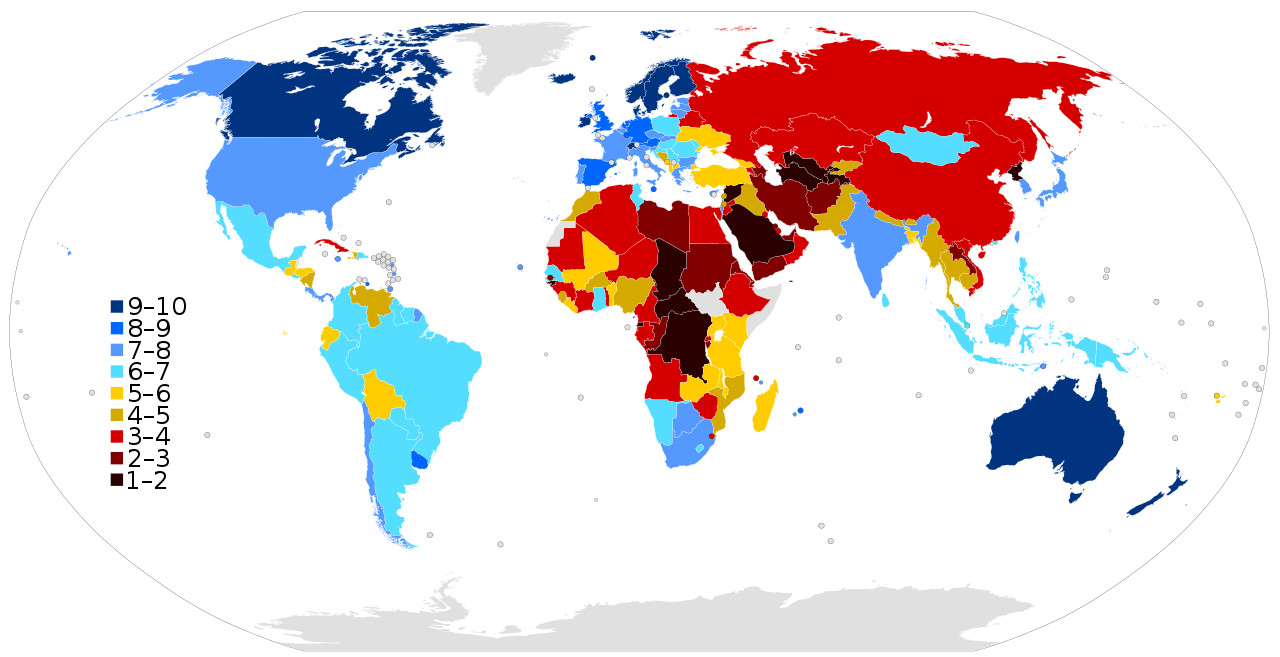Democratic Index 2016
February 25, 2017 | Expert Insights
How does India figure
On 22 Feb 17, the Economist’s Intelligence Unit, released data about Democratic Index (DI) 2016. The DI is based on five categories; election process & pluralization, civil liberties, functioning of government, political participation and political culture. In the 9th Edition of DI, 165 states and two territories were evaluated and classified as one of four regimes; full-democracies, flawed democracies, hybrid regimes and authoritarian regimes. Performance of Democracy on a global scale is indicated in the Table below.
Full Democracies | Flawed Democracies | Hybrid Regimes | Authoritarian Regimes | Total |
19 | 57 | 40 | 51 | 167 |
Norway, Iceland and Sweden secured the top three positions in the index. Surprisingly, Japan (20), USA (21), France (24) and India (32), were classified as flawed democracies.
Interesting Trends
Trust Deficit. The study observed that public confidence in government had slumped to historical lows, particularly in the US. However, it points out that the decline in public trust pre-dated President Trump’s election. Thus, while he may have not been the cause of erosion in public trust, he was certainly the beneficiary.
Increased Political Participation. In the 21st Century elections have become more popular with increased participation. The BREXIT Referendum saw a record 72.2% turnout.
Asian Region. Since the commencement of the DI, the Asian region had shown more headway in advancing democracy than any other region. Unlike the rest of the world, where populism is on the rise, South America appears to have bucked the trend and appears to be suffering from ‘populist hangover’. In Dec 15, Argentina ended 12-years of populist left-wing rule. Similarly, in Peru, a leftist government was replaced by a center-right technocrat President. In 2016, left-wing Brazilian President was impeached for contravening budget rules. Thus, unlike the rest of the world, South America has opted for softer politics with center-right, pro-market leaders at the helm.
Assessment
The study acknowledges that democracies are in trouble and suspects that the prime reason may stem from the economic and financial crisis of 2008-09 and the prolonged crisis that followed. Since that time, there have been large GDP contractions and growing unemployment, inequality and poverty. In the absence of convincing solutions from moderate leaders in US and Europe, the public appears increasingly inclined to test waters with more radical leaders. However, if radical leaders are unable to deliver, as is widely expected, US and Europe may also suffer from ‘populist hangover’, like South America. What the world needs at this juncture is visionary leadership, that can lead an increasingly confused population, in the face of rapid social and technological change.


